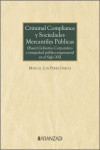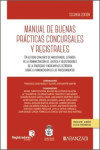JUSTICE, TRADE, SECURITY, AND INDIVIDUAL FREEDOMS IN THE DIGITAL SOCIETY
Formato Dúo
Esteban De La Rosa, Fernando / Gil Ruiz, Juana María / Orti Vallejo, Antonio / Sánchez Lorenzo, Sixto Alfonso
Datos técnicos
- ISBN 9788413913513
- Año Edición 2021
- Páginas 488
- Encuadernación Tapa Blanda
- Idioma Inglés
Sinopsis
The main target audience for this book will be academics, postgraduate students, legal practitioners, and policy-makers. The book is also aimed at journalist, economists, political scientists, and anyone interested in exploring and finding new tools to regulate the digital society, approaching the legal challenges fostered by new technology, and wishing to understand how the development of the digital society has to be legally driven to protect fundamental rights. The topic is interesting for varied audiences from all over the world.
The book will also be relevant for public authorities and legislative powers at the international, national, and regional levels to assist in the drafting of laws. The subject matter is particularly attractive for providing objective analysis in the current political debate related to the development of the digital society. The proposed book deals with highly topical legal issues, since the development of the new technologies requires new legal analysis.
The book has been drafted in English by a multinational group of selected authors. This will facilitate the international projection of its publication all over the world. Addressing the legal analysis from different sectoral angles (artificial intelligence, digital justice, electronic contracts, digital trade, gender, security, and public law) increases the potential interest of the very diverse actors in this field.
Índice
START
TABLE OF CONTENTS
AUTHORS
INTRODUCTION
PART I AI AND DIGITAL JUSTICE
CHAPTER 1 LEGAL INTELLIGENCE AT THE INTERSECTION BETWEEN AI AND LAW
CHAPTER 2 ARTIFICIAL INTELLIGENCE AS A NEW COMPONENT OF THE JUSTICE SYSTEM: HOW IT CREATES NEW POSSIBILITIES, BUT HAS LIMITATIONS ESPECIALLY WITH REGARDS TO GOVERNANCE
PART II GOVERNANCE IN THE DIGITAL ERA
CHAPTER 3 A FRAMEWORK FOR REGULATING AI IN THE PUBLIC SECTOR
CHAPTER 4 THE ECHR’S DOCTRINE ON MASSIVE SECRET SURVEILLANCE OF DATA AND COMMUNICATIONS: ON THE NEED FOR A CONSTITUTIONAL THEORY ON MASSIVE SECRET SURVEILLANCE
CHAPTER 5 THE LEGAL-ADMINISTRATIVE REGIME OF MEDICINAL PRODUCTS IN THE DIGITAL SOCIETY ERA: CHALLENGES AND OPPORTUNITIES FROM A SPANISH PERSPECTIVE
PART III ELECTRONIC CONTRACTS AND DIGITAL TRADE
CHAPTER 6 DIGITAL TRADE: IN SEARCH OF APPROPRIATE REGULATION
CHAPTER 7 CLICK-WRAP INTERNATIONAL CONTRACTS
CHAPTER 8 A HUMANIST APPROACH TO PRIVATE INTERNATIONAL LAW FOR THE DIGITAL AGE
CHAPTER 9 SMART CONTRACTS AND CONSUMER PROTECTION
PART IV SECURITY, GENDER AND FUNDAMENTAL RIGHTS IN CYBERSPACE
CHAPTER 10 GENDER VIOLENCE AND THE USE OF ALGORITHMS AS AN EFFECTIVE TOOL FOR THE PROTECTION OF FUNDAMENTAL RIGHTS
CHAPTER 11 MORE THAN WORDS: ASPECTS OF ONLINE MISOGYNY
CHAPTER 12 PORNOGRAPHY RESTRICTIONS: A FEMINIST CHALLENGE IN THE DIGITAL SOCIETY
CHAPTER 13 CYBERCRIME, GLOBALIZATION, AND RISK SOCIETY
Otros libros que te pueden interesar
- ¿Quiénes somos?
- Gastos de envío
- Política de privacidad
- Políticas de devolución y anulación
- Condiciones Generales de contratación
- Contacto
2025 © Vuestros Libros Siglo XXI | Desarrollo Web Factor Ideas










